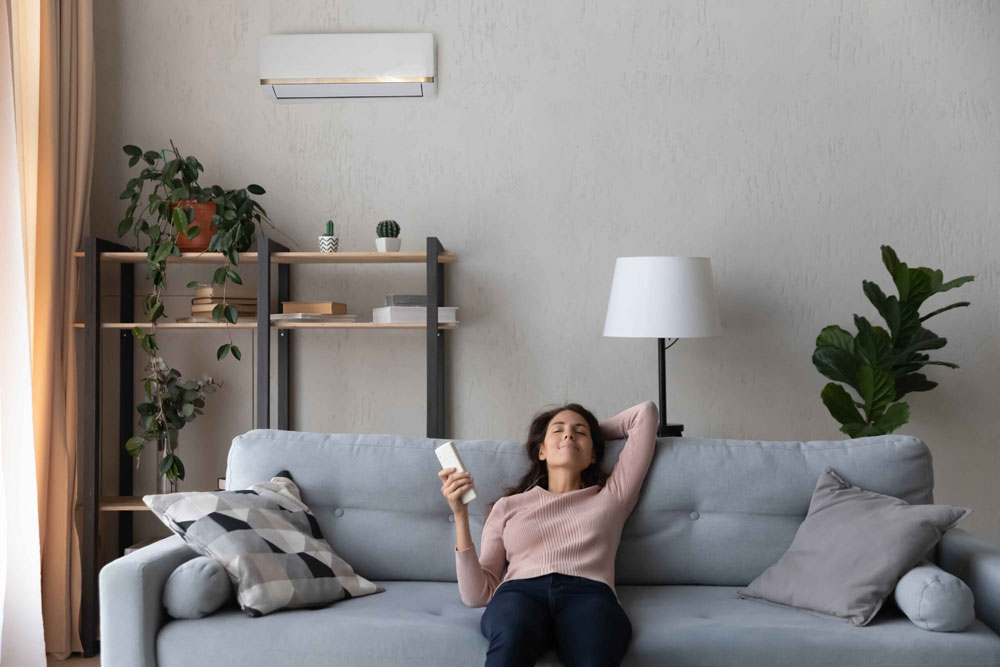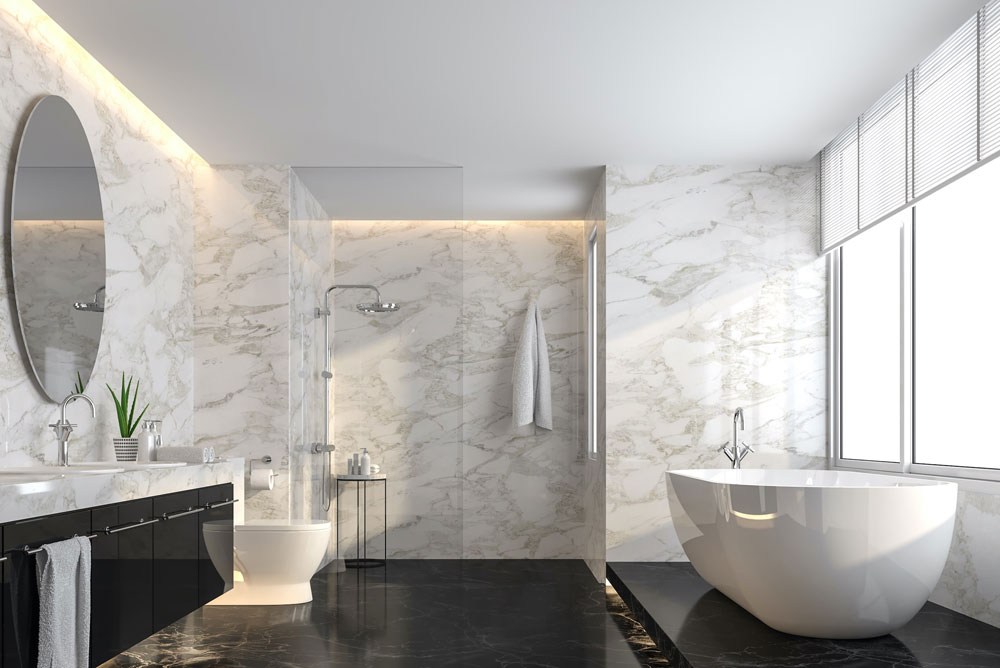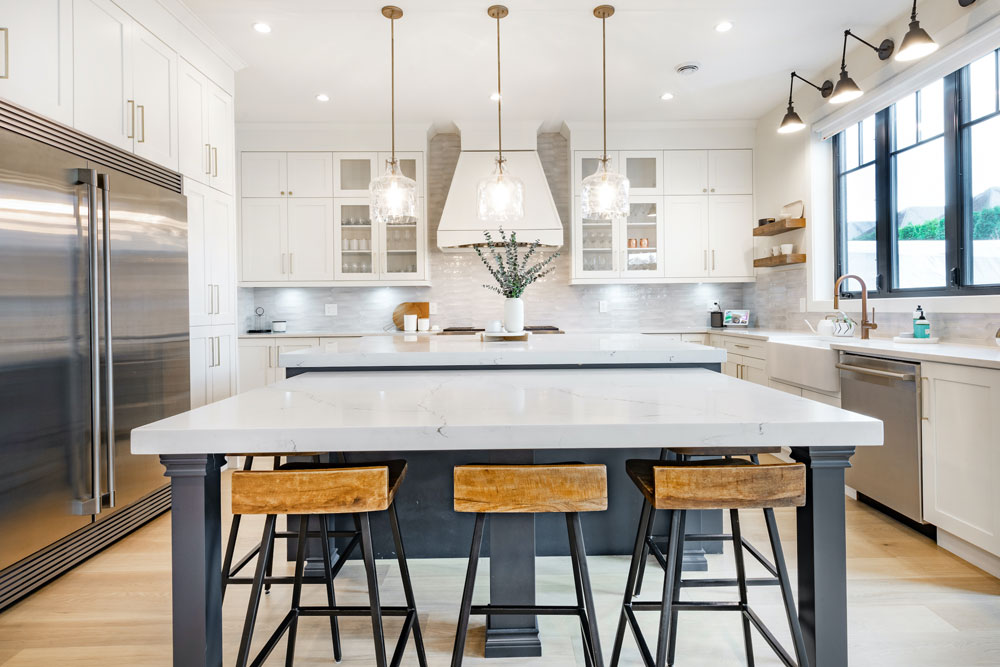MyHomeUpgrade
Which Is Right for You, an Air Conditioner or a Heat Pump?

When you need to keep your home comfortably cool in summer, there are two main HVAC options available. An air conditioner is the most common choice, but there’s another type of unit that could be even more efficient, depending on your local climate.
A heat pump does double duty by cooling in the summer and warming in the winter, potentially making it a simpler and more cost-effective solution than a traditional AC/furnace setup. Here’s what you need to know to decide if an air conditioner or heat pump is right for you.
What Heat Pumps and Air Conditioners Have in Common
In the summer, both heat pumps and air conditioners work in a similar way. They use a combination of fans and compressed refrigerant chemicals to extract heat energy from your home’s interior and transfer it outside, cooling your home in the process. When a heat pump is used in cooling mode, it essentially performs exactly like an air conditioner, with a similar level of efficiency and cooling ability.
The Differences
However, there’s one key difference between the two systems. A heat pump can be switched to work in the opposite direction, using the same mechanism to transfer heat energy from outdoors into your home. In effect, a heat pump switched to warming mode cools the nearby exterior air and, as a side effect, warms up the home’s interior.
Choosing Between a Heat Pump and an Air Conditioner
When choosing between the two systems, there are four key points to bear in mind.
1) Installation Costs
Today’s air conditioners can be very affordable to buy and install, especially if you choose a portable unit for cooling a small area. However, as your needs grow with a larger home, the overall cost can rise for a fully professional and seamless central AC installation.
At the basic level, a heat pump costs more to install as it needs indoor and outdoor units to work in both modes, depending on the season. Again, with larger homes, the expense can mount up with the need for multiple indoor units, but potential cost savings come from not needing a separate heating system in winter.
Our network of recommended HVAC contractors in your area can give you a precise estimate for installing either system, taking into account your home’s size and cooling and heating needs.
2) Cooling Ability
When it comes to cooling, there’s little difference between a typical air conditioner and a similar heat pump. Both come with energy-efficiency ratings so that you can see exactly how much cooling power they provide for their electricity consumption. For efficient cooling, choosing a high-quality unit is usually more important than deciding which type to buy.
3) Heating Ability
If a heat pump’s two-in-one ability seems ideal, you need to consider whether it’s suitable for your local climate. In milder areas, a heat pump can be powerful enough to warm your home throughout winter. However, when the outside temperature falls below freezing for extended periods, a heat pump’s efficiency starts to diminish. If you regularly experience freezing weather over a long period of time, a heat pump’s auxiliary/emergency heating component (usually an electric heating element but sometimes a furnace) will kick on frequently. This is much less efficient than regular heat pump operation, which eliminates much of its dual-purpose advantage.
That being said, a heat pump is more efficient than a furnace in moderate or near-freezing temperatures, so adding a heat pump to an existing system can reduce overall energy costs by sharing the heating workload.
Of course, an air conditioner has no heating capability at all. If the weather often falls low enough to require heating, however mild, you’ll need to pair an air conditioner with a furnace or other heat source for a full HVAC system. This combination takes up more space than a heat pump while also being less efficient overall.
4) Longevity
Although both types of cooling units can give you years of reliable use, in general, a high-quality air conditioner will last longer than an equivalent standard of heat pump. The reason is simply that a heat pump will usually be working in winter as well as summer, doubling the wear and tear.
However, the costs of a shorter average life can be offset by the heat pump delivering low-cost warmth during winter, so the overall expense can work out to be similar or even less.
So, which type of cooling unit should you choose? In general, if you live in a hot climate and rarely need heating, an air conditioner alone may be enough for your needs. In moderate climates, a heat pump can provide both heating and cooling at a low energy cost. However, if the weather in your area often dips below freezing, then a traditional HVAC pairing of an air conditioner with a furnace is likely the best solution.
For more information and advice on your cooling options, call us at 1.833.527.1149 to get started. Our team of expert advisors are here to help you every step of the way. We can also connect you with one of our recommended HVAC contractors to get the job done within your budget. Start renovating like an expert, today!
You May Also Like
7 Major Home Renovation Mistakes to Avoid

Any major home renovation will be a costly exercise, but the expense can quickly spiral out of control if the project isn't carefully planned and competently carried out. The first step toward achieving home renovation success is to avoid these seven common planning mistakes that can greatly increase the cost and hassle of any project,…
7 Tips to Easily Renovate Your Bathroom on a Budget

A bathroom renovation can make a huge difference in your home, but it can also be an expensive home improvement project to take on if you’re not careful. Because of the potentially high cost, many people delay upgrading their bathroom and miss out on all the extra comforts and convenience that a remodel can provide.…
6 Ways to Personalize Your Kitchen Renovation

If you're planning a kitchen renovation, there are countless design ideas available online to use as inspiration. Using a pre-existing design is a great way to save money on your kitchen renovation. However, your kitchen should be an expression of your tastes and personality, so relying too much on someone else's ideas can lead to…


